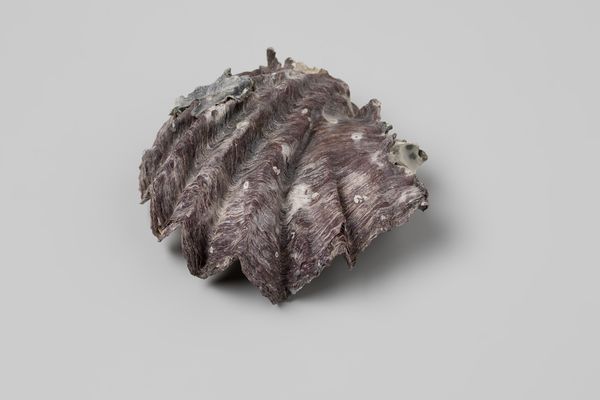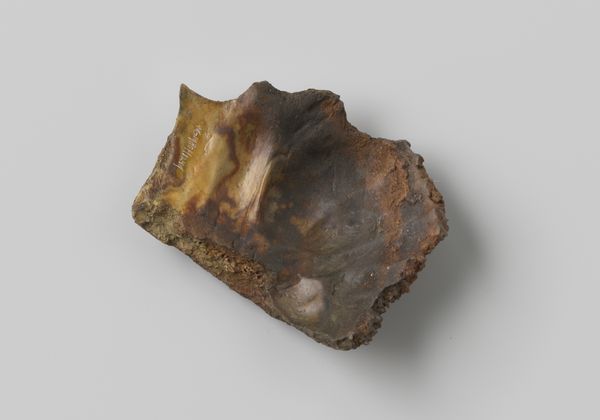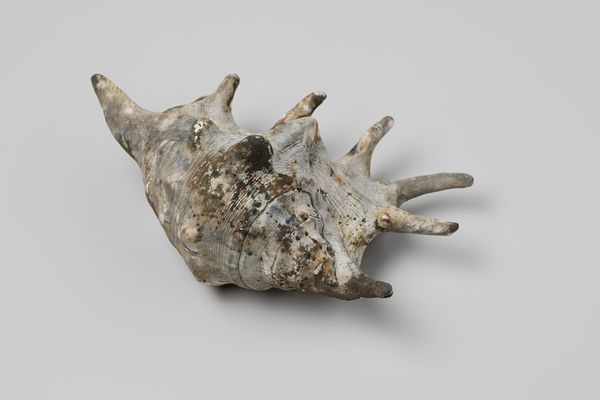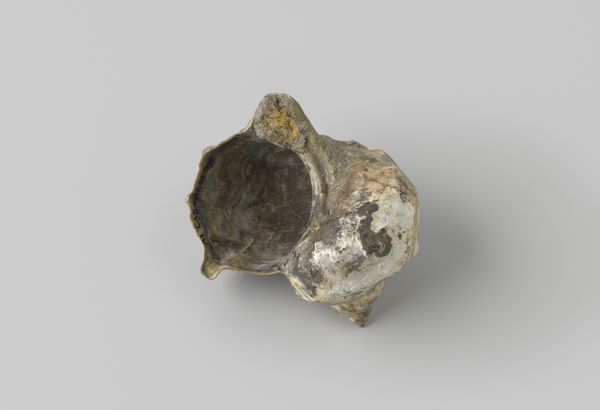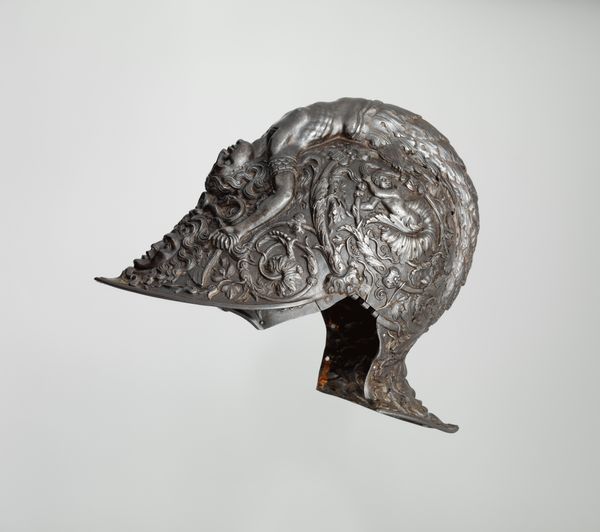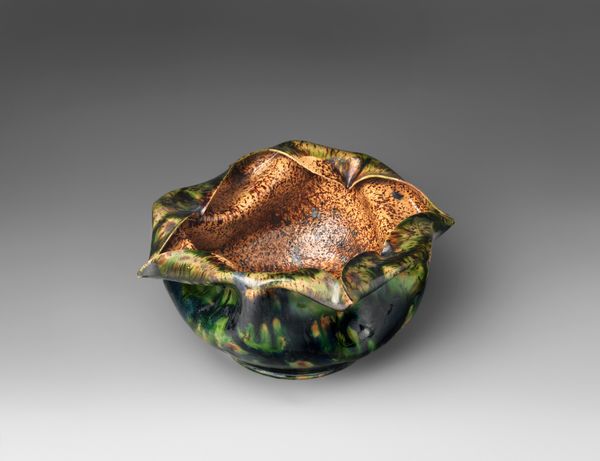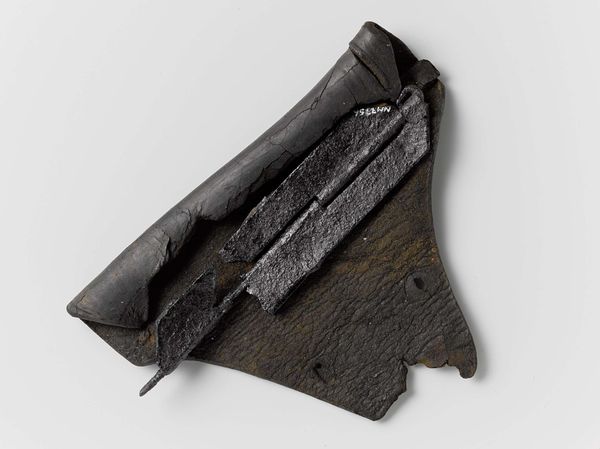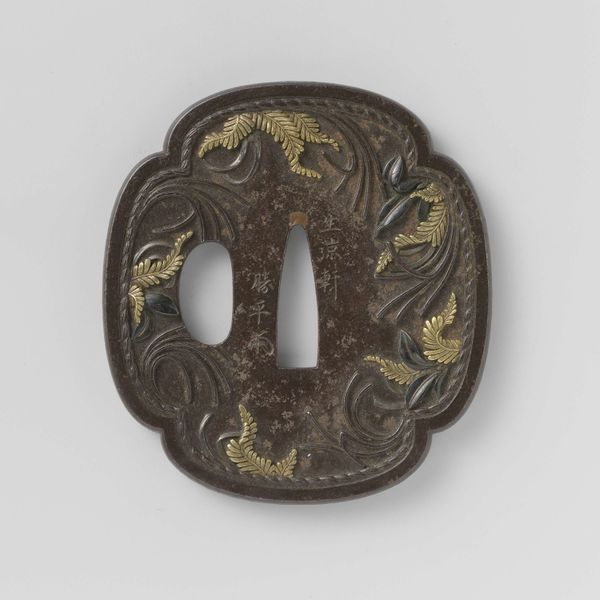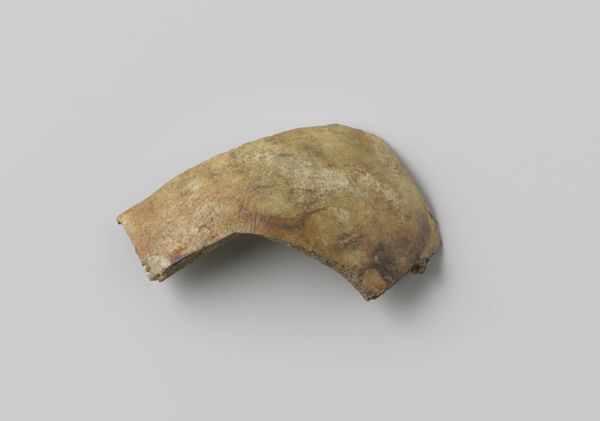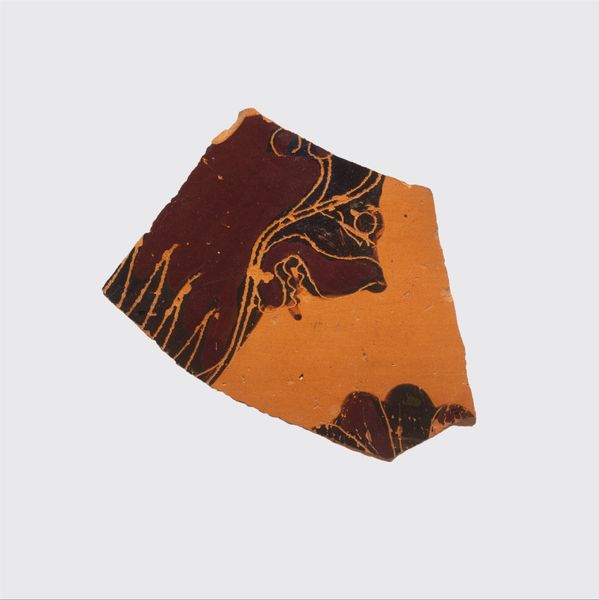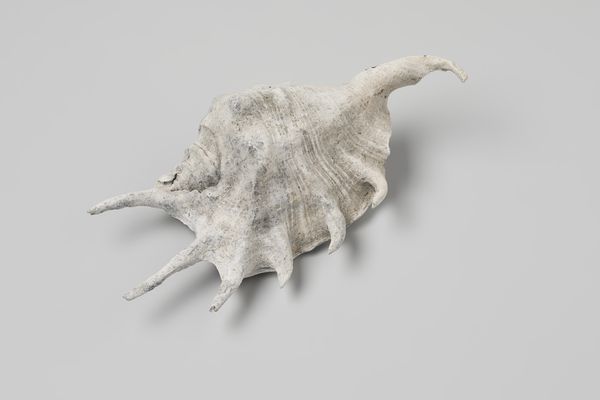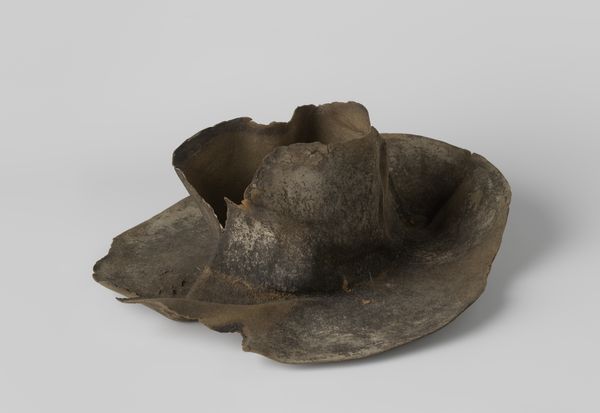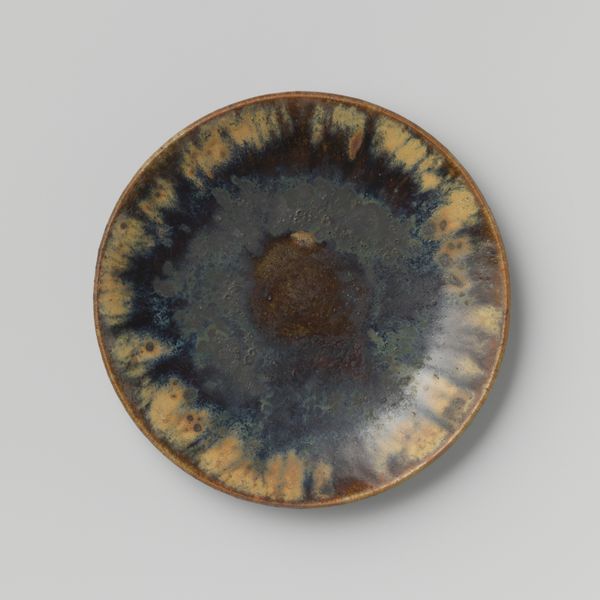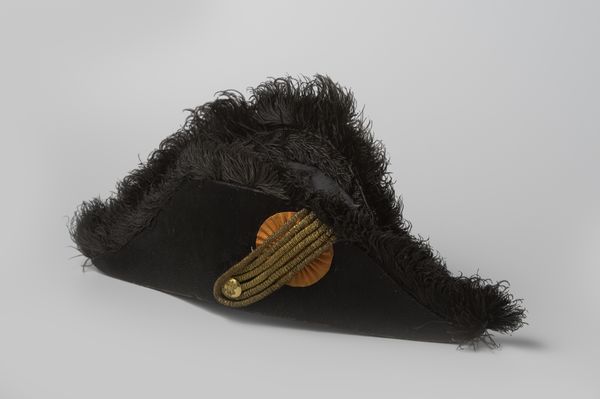
metal, relief, sculpture
#
germany
#
metal
#
relief
#
11_renaissance
#
sculpture
#
men
#
armor
Dimensions: 9 x 6 in. (22.9 x 15.2 cm), wt. 7 oz. (185 g)
Copyright: Public Domain
Curator: Here we have a rather striking object: a pommel plate, dating from about 1525 to 1575, and believed to be the work of Jörg Sorg the Younger. Editor: My goodness, what an intense expression! It has a formidable energy emanating from its detailed, gilded relief. Almost leonine, but certainly human. Curator: Indeed. A pommel plate, of course, would have been attached to the pommel of a sword—that part of the hilt which serves to counterbalance the blade and provide a secure grip. In a way it expresses the power dynamic. Editor: It’s masterfully executed. Observe how the relief gives volume to the stylized lion's mane that frames the face. The texture alone speaks volumes. Is this piece made from steel? Curator: Yes, steel—but the gilded relief isn't purely decorative. This era was turbulent, and even the ornamentation of armor spoke to social status and allegiance. Wearing armour such as this, for war or parade, meant demonstrating both martial prowess, wealth and also authority in a courtly setting. Editor: It appears as if it might've had political motives during the German Renaissance, but now it carries symbolic value. You mentioned allegiance; do you suspect there may have been any significance attributed to this object historically, beyond what appears? Curator: Definitely. Heraldry was immensely important in the Renaissance and a symbol such as this would communicate status or group allegiance. Editor: I suppose we’ve only scraped the surface but thank you, it's helped me notice many attributes I would’ve previously passed over! Curator: You're most welcome! The craftsmanship tells a captivating story about its period, and leaves one thinking long after their encounter with it.
Comments
No comments
Be the first to comment and join the conversation on the ultimate creative platform.
